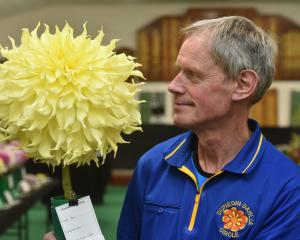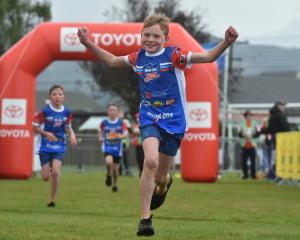English science communicator James Piercy, who was badly injured in a car accident near Norwich, England, in 2011, made that comment during a public discussion at the Dunedin International Science Festival yesterday.
Dr Christine Jasoni, an Otago senior lecturer in anatomy, chaired the discussion and asked questions of fellow participants Mr Piercy and Dr Reuben Johnson, the latter an Otago senior lecturer in neurosurgery and consultant neurosurgeon at Dunedin Hospital.
Mr Piercy discussed aspects of his journey to recovery during a noon ''Cafe Sci'' event at the Otago Museum attended by more than 90 people.
Mr Piercy's life changed on January 30, 2011, when a nail punctured the tyre of his family car during a Sunday outing.
The car left the road, hitting a tree.
His wife, Kate (36), was killed on impact.
His brain injury had been ''very severe'' and his subsequent recovery was ''phenomenal'', Mr Piercy has said.
The brain often managed to rewire itself after a significant injury.
And he joked that although it was challenging finding that a familiar highway, such as to Christchurch, was suddenly unavailable, the brain could eventually find new routes, if hard work was devoted to relearning previous skills.
He emphasised the need for doctors to treat individual patients and not their overall medical condition, because the abilities, interests and priorities of patients before their accidents had varied widely.
And he reminded himself to view his accomplishments positively, and to ''see how far you've come, not how far you have to go''.
''I can stand up and talk for an hour- that's fantastic.''
And he could still drive for two hours, and do many other things, including flying ''half way round the planet'' to give public talks in Dunedin, he said.
Dr Johnson also discussed the progress ambulance staff, paramedics and medical staff had made in improving the quality of early responses to patients with head injuries.













